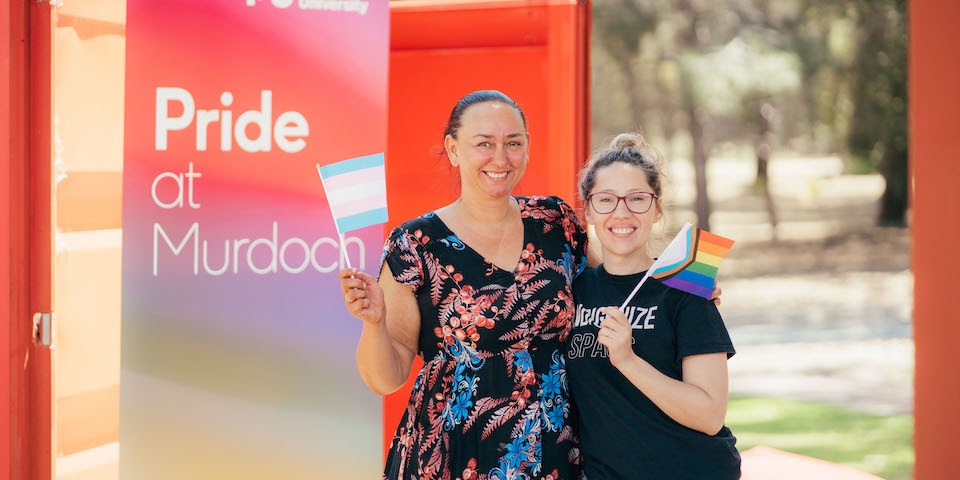Elder-led program to support Indigenous LGBTQA+ youth

A world first Elder-led intervention for improving the social emotional wellbeing of Aboriginal and Torres Strait Islander LGBTQA+ young people is being developed for trial in Western Australia.
Pride Yarns, a joint research project by Murdoch University with Edith Cowan University, Telethon Kids Institute, the Youth Pride Network, Wungening Aboriginal Corporation and Yorgum Healing Services, brings together Aboriginal and Torres Strait Islander LGBTQA+ youth with community members and Elders to safely discuss how LGBTQA+ identities can be accepted and celebrated within culture.
The initiative builds on positive findings from a pilot project, Pride Yarns with Mob, which provided opportunities for Aboriginal and Torres Strait Islander LGBTQA+ young people to connect meaningfully with Elders.
That first project resulted in increased levels of cultural connection and feelings of acceptance and social inclusion of the LGBTQA+ identity within Noongar culture.
Pride Yarns also responds to Rainbow Knowledge, a first of its kind national survey of Aboriginal and Torres Strait Islander LGBTQA+ young people. In that survey, nearly half of participants reported having attempted suicide in their lifetime and 19 per cent had attempted suicide in the last year.
They also reported low feelings of connection to their spirit and ancestors, to culture and to an Aboriginal and Torres Strait Islander LGBTQA+ community.
Pride Yarns is aimed at addressing that and has won Federal Government funding via a major Medical Research Future Fund (MRFF) Indigenous Health Research Fund grant. Project Investigator and Dean of Indigenous Knowledges at Murdoch, Associate Professor Bep Uink, led the project which presents a unique opportunity to develop culturally informed interventions.
The project will allow Elders and Aboriginal LGBTQA+ young people to connect and discuss how Aboriginal and LGBTQA+ identities intersect and can be celebrated.
The pilot facilitated yarning circles between Elders and Aboriginal and Torres Strait Islander LGBTQA+ youth to film digital resources modelling healthy conversations about sexuality and gender diversity.
Dr Uink is working alongside Associate Professor Rebecca Bennett, investigator on the project and Pro Vice Chancellor Equity, Diversity and Inclusion at Murdoch, and collaborators to produce an evidence-based toolkit for services wishing to run community-driven interventions to support social emotional wellbeing among Aboriginal and Torres Strait Islander LGBTQA+ youth.
The primary objective of Pride Yarns is to co-design, implement, and test an inter-generational support intervention, which facilitates safe and supportive conversations about the intersection culture, sexuality, and gender diversity between Aboriginal and Torres Strait Islander LGBTQA+ young people and their Elders.
This innovative project will have impact for Aboriginal communities across Australia by demonstrating the feasibility of an intervention that is community-driven, co-designed and that acknowledges the role of Elders in supporting young peoples’ wellbeing.
Pride Yarns is being led by Aboriginal LGBTQA+ researchers and Aboriginal researchers along with LGBTQA+ and non-Aboriginal non-LGBTQA+ researchers. The leadership of this research by Aboriginal and LGBTQA+ community members researchers is critical.
Lead researchers

